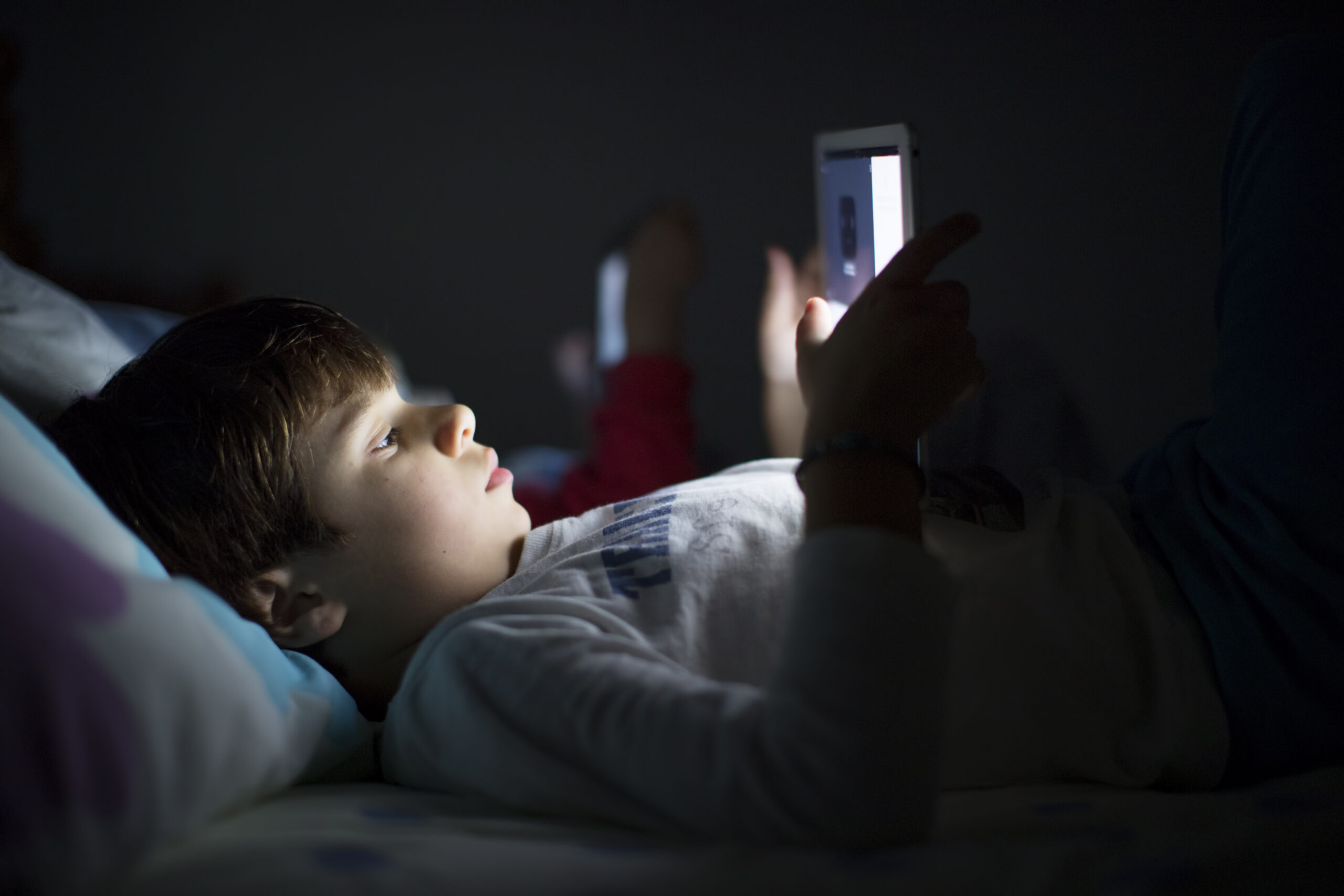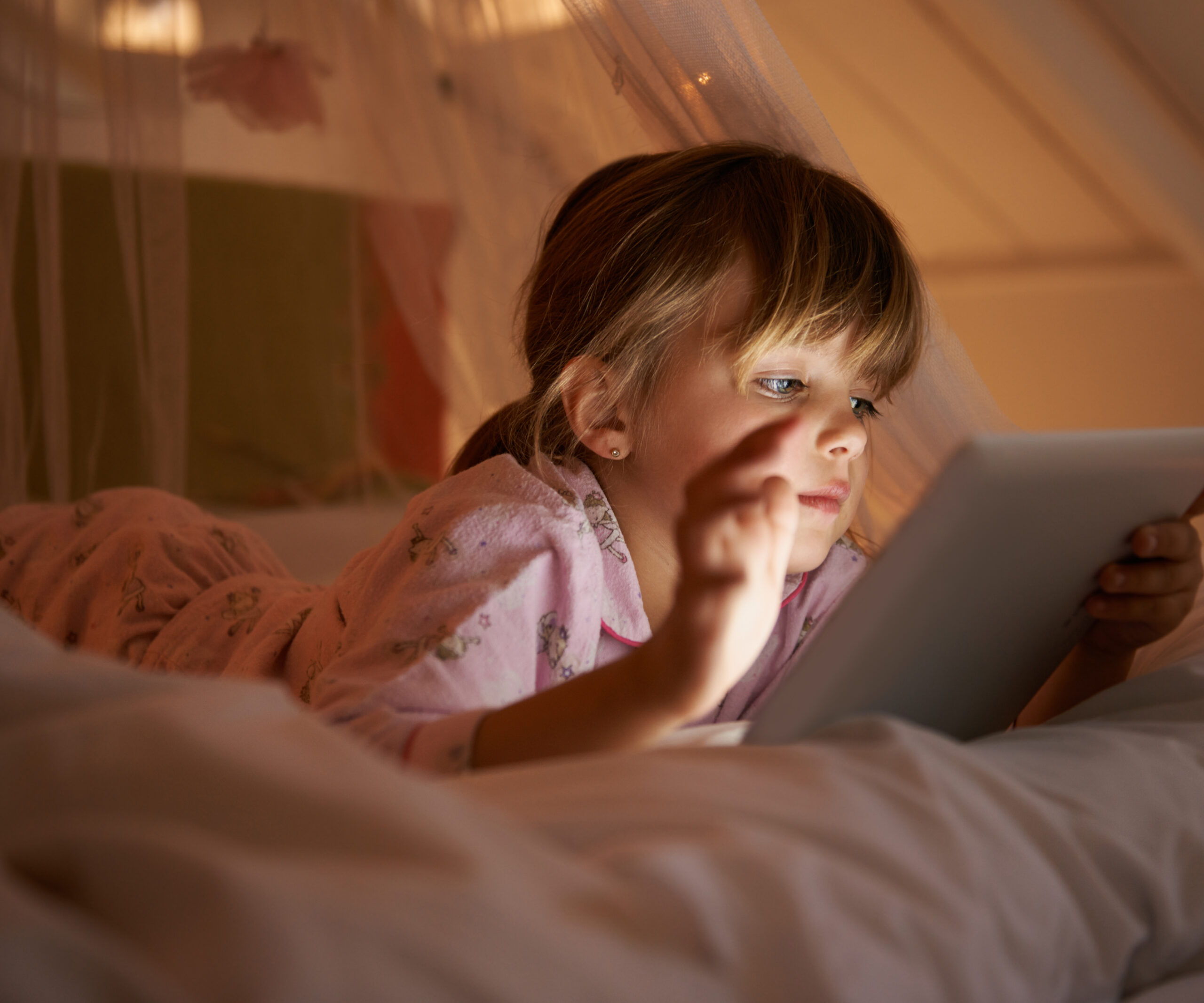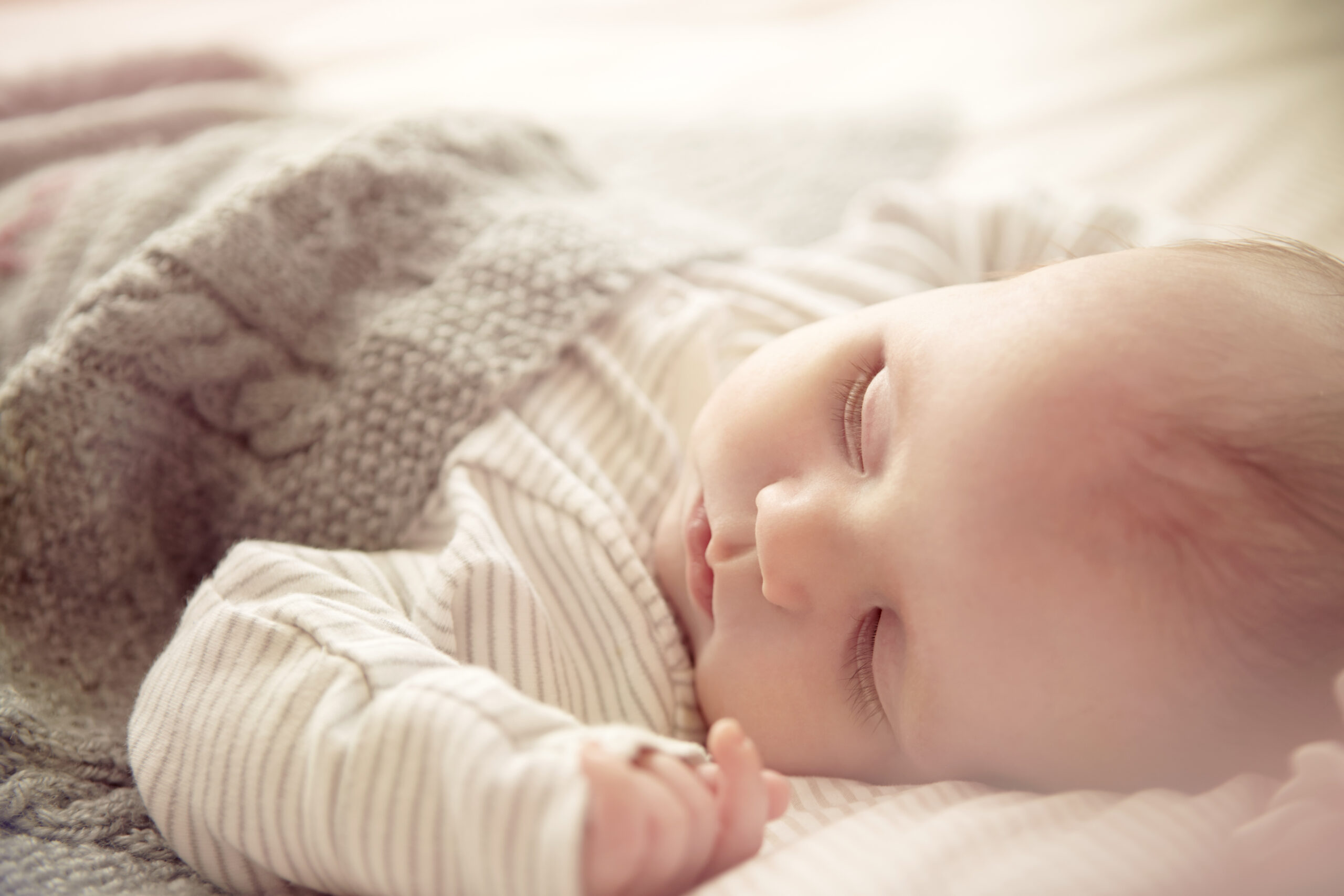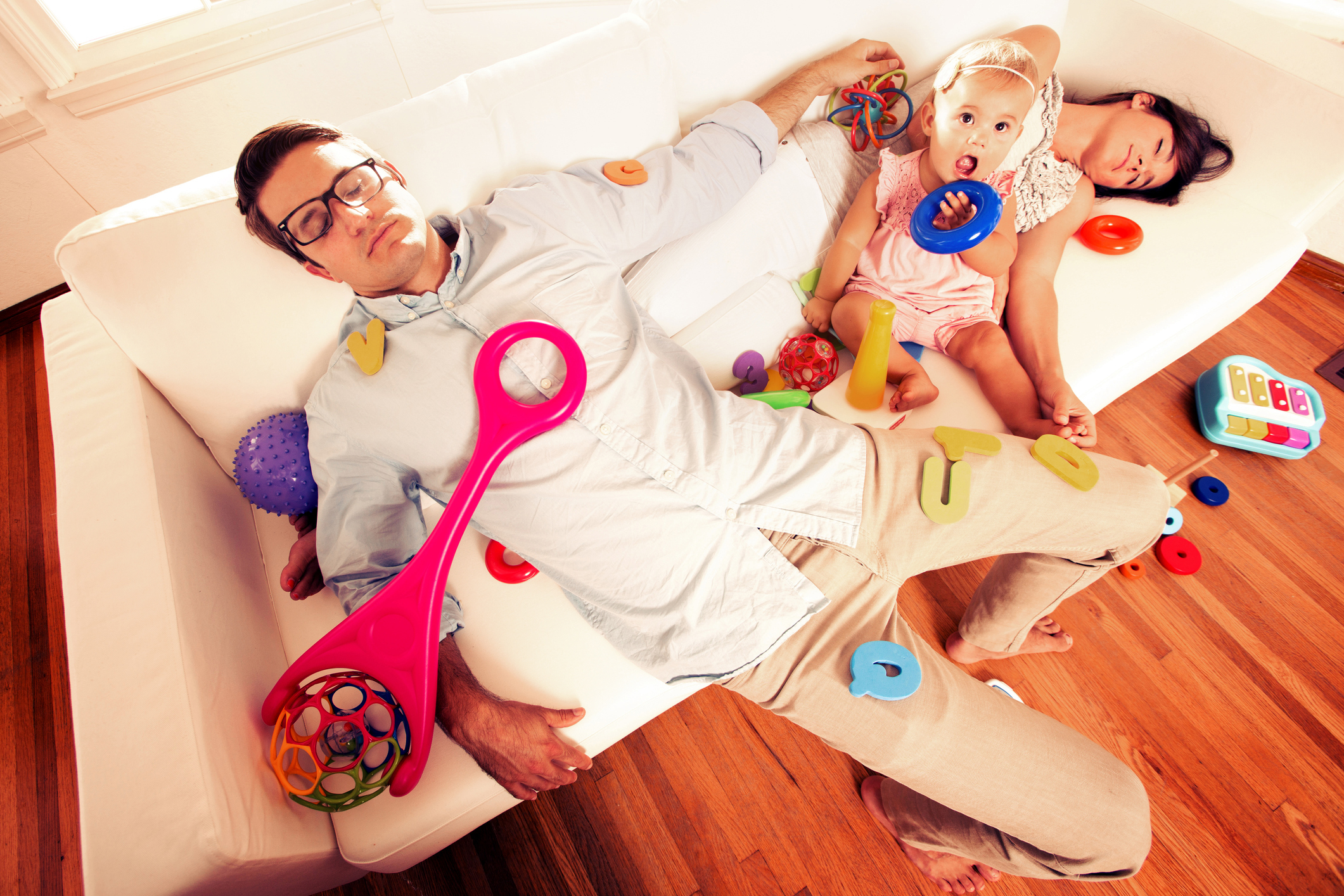The next time your child begs you for 10 more minutes on the tablet/laptop/your phone before bedtime, heed this thought:
New research has shown that bright light before bedtime plays even more havoc with children’s ability to fall asleep than previously thought.
We’ve all had an awareness that we should all – kids and adults alike – be off devices at least an hour before bedtime, because the bright light from the screens suppresses our body’s production of melatonin, the hormone that brings the onset of sleep.
But a new study, published in the journal Physiological Reports, shows that the bright light has more of an impact on children than previously thought.
“We know younger individuals have larger pupils, and their lenses are more transparent,” study co-author Monique LeBourgeois, an associate professor in the Department of Integrative Physiology, told The Guardian.
“This heightened sensitivity to light may make them even more susceptible to dysregulation of sleep and the circadian clock.”

The study involved putting 10 healthy children aged three to five years old on a seven-day sleep trial.
After five days of following a strict bedtime schedule – to normalise their body clocks – the children were then exposed to bright light by playing at a ‘light table’ before bedtime on days six and seven.
Analysis of saliva samples taken from the children throughout the week found melatonin levels were 88 per cent lower after bright light exposure compared to no light exposure.
“In this study we found that these kids were extremely sensitive to light,” says lead author Lameese Akacem, a researcher in the Sleep and Development Lab at the University of Colorado Boulder.
Light is our brain clock’s primary timekeeper, so when light hits the retina in the eye in the evening, it sends messages to the circadian system to suppress melatonin and push back the body’s entrance into its “biological night”.
For preschoolers this may not only lead to trouble falling asleep one night, but to chronic problems like not feeling sleepy at bedtime.
Akacem says this kind of research cannot be underestimated because sleep problems that develop in childhood can persist later on in life “and have a multitude of negative consequences”.


